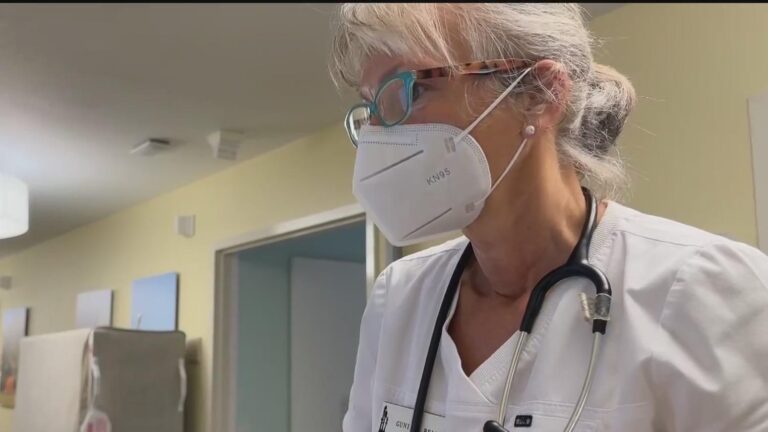San Francisco Bay Area health care facilities have reinstated mask mandates as COVID-19 cases show signs of resurgence, officials announced this week. The move comes amid growing concerns over new variants and rising hospitalizations, prompting authorities to reinforce protective measures to safeguard vulnerable patients and medical staff. This development marks a cautious return to stricter health protocols in the region, reflecting ongoing efforts to curb the spread of the virus within critical care settings.
Mask Mandates Reinstated in Bay Area Health Care Settings to Curb COVID-19 Risks
Amid rising COVID-19 cases and the emergence of new variants, authorities in the San Francisco Bay Area have reinstated mask mandates specifically within health care environments. This decisive move aims to protect vulnerable patients and health care workers by reinforcing one of the most effective preventive measures. The mandates require all individuals entering hospitals, clinics, and long-term care facilities to wear masks at all times, regardless of vaccination status.
Key elements of the mandate include:
- Mandatory use of surgical or higher-grade masks for staff and visitors.
- Strict enforcement of social distancing in waiting areas.
- Regular testing protocols for health care personnel.
- Enhanced ventilation and sanitation standards.
| Facility Type | Mask Requirement | Additional Precautions |
|---|---|---|
| Hospitals | Universal masking | Patient screening on entry |
| Clinics | Mandated indoors | Appointment spacing |
| Long-term Care | Continuous masking | Visitor restrictions |
Officials Cite Rising Infection Rates and Vulnerable Populations as Primary Concerns
Health officials in the San Francisco Bay Area have reinstated mask mandates specifically targeting health care facilities as a direct response to an uptick in COVID-19 infection rates. Authorities emphasize the critical nature of this measure, pointing out that vulnerable groups—including the elderly, immunocompromised individuals, and those with chronic illnesses—remain at elevated risk of severe complications. The policy aims to curb transmission within environments where exposure can lead to devastating outcomes.
Officials have outlined several key factors driving the decision:
- Increased community spread: Recent data indicates a steady rise in infection clusters.
- Higher prevalence of contagious variants: These strains contribute to rapid transmission cycles.
- Protection of frontline workers and patients: Health care settings demand stringent safeguards.
| Group | Risk Level | Recommended Action |
|---|---|---|
| Senior Citizens | High | Strict Mask Use |
| Health Care Workers | Medium-High | Mandatory Masking |
| General Public | Moderate | Advised Masking |
Health Care Facilities Implement Enhanced Safety Protocols Amid Pandemic Resurgence
Health care facilities across the San Francisco Bay Area have swiftly reinstated mask mandates in response to the recent surge in COVID-19 cases. This move prioritizes the safety of both patients and medical staff, aiming to curb further transmission within highly sensitive environments. Visitors and employees are now required to wear face coverings indoors, regardless of vaccination status, reflecting a precautionary approach amid evolving viral variants.
Alongside mask requirements, institutions have expanded safety protocols featuring:
- Enhanced screening checkpoints at all facility entrances.
- Increased availability of hand sanitizing stations throughout high-traffic areas.
- Strict visitor limitations to reduce crowd density.
- Regular COVID-19 testing for frontline health workers.
These layered strategies aim to protect vulnerable populations and ensure that hospitals can maintain critical care capacity during this renewed phase of the pandemic.
Experts Urge Continued Vigilance and Recommend Vaccination Alongside Mask Usage
Health experts emphasize the critical need for maintaining layered protection against respiratory illnesses, as mask mandates are reinstated in the San Francisco Bay Area’s healthcare settings. They highlight that masks remain a powerful tool in reducing transmission, especially in environments where vulnerable populations are present. Alongside mask usage, vaccination is strongly advocated to enhance immunity and prevent severe outcomes from infections.
Key recommendations include:
- Maintaining consistent mask usage in medical facilities
- Encouraging booster vaccinations to strengthen immunity
- Promoting public awareness around the benefits of combined preventative measures
- Continuing hygiene practices such as regular hand washing
| Preventative Measure | Primary Benefit | Recommended For |
|---|---|---|
| Mask Usage | Limits airborne transmission | All individuals in healthcare facilities |
| Vaccination | Boosts immune defense | Eligible populations, including high-risk groups |
| Hand Hygiene | Reduces surface contamination | Everyone |
In Summary
As the San Francisco Bay Area reinstates mask mandates in health care facilities, authorities emphasize the ongoing need for vigilance amid fluctuating COVID-19 case numbers. Health officials continue to monitor the situation closely, urging residents and visitors to comply with safety measures to protect vulnerable populations. The return of masks in these settings marks a cautious step aimed at curbing transmission and safeguarding public health as the region navigates the evolving pandemic landscape.




